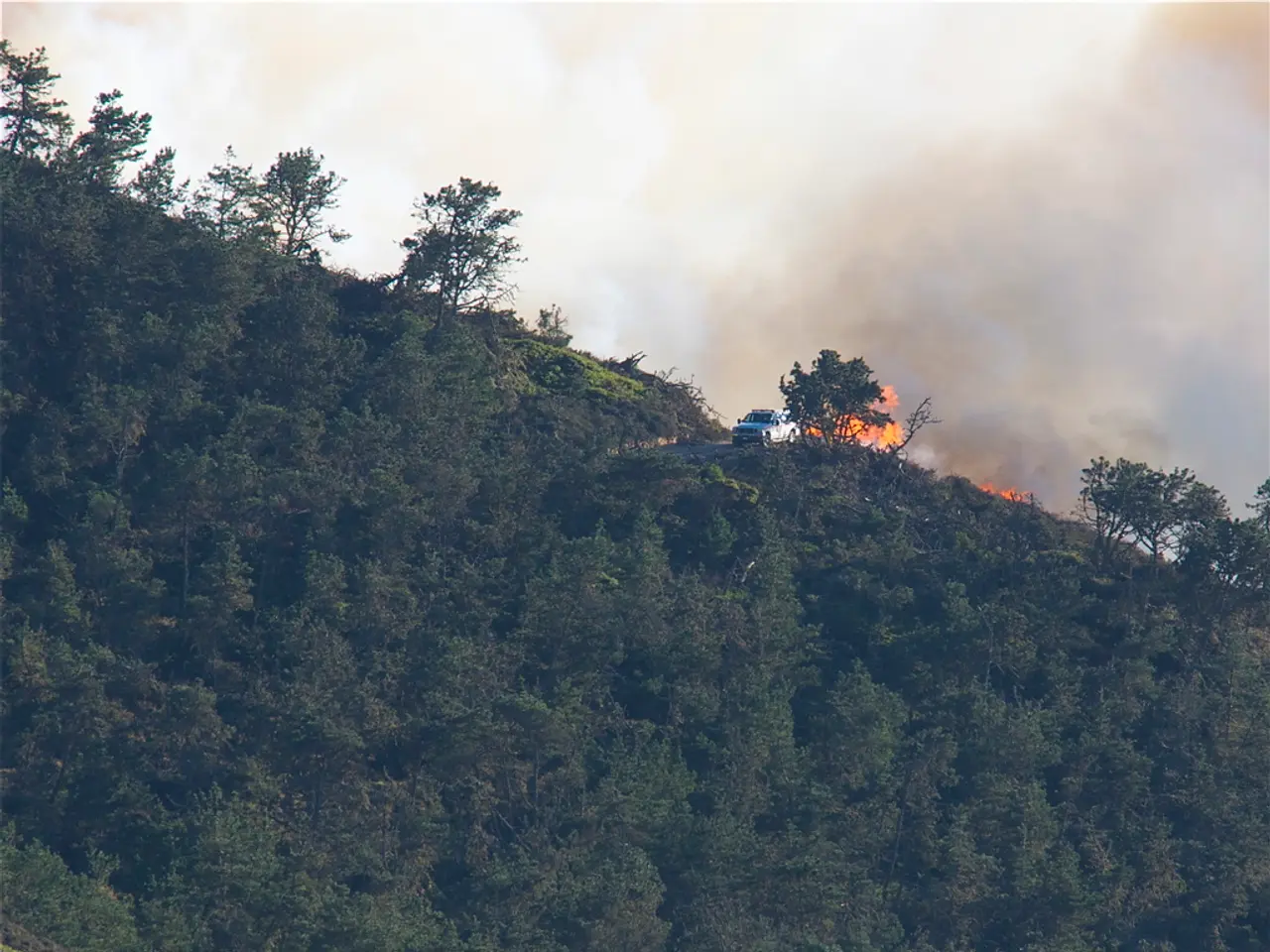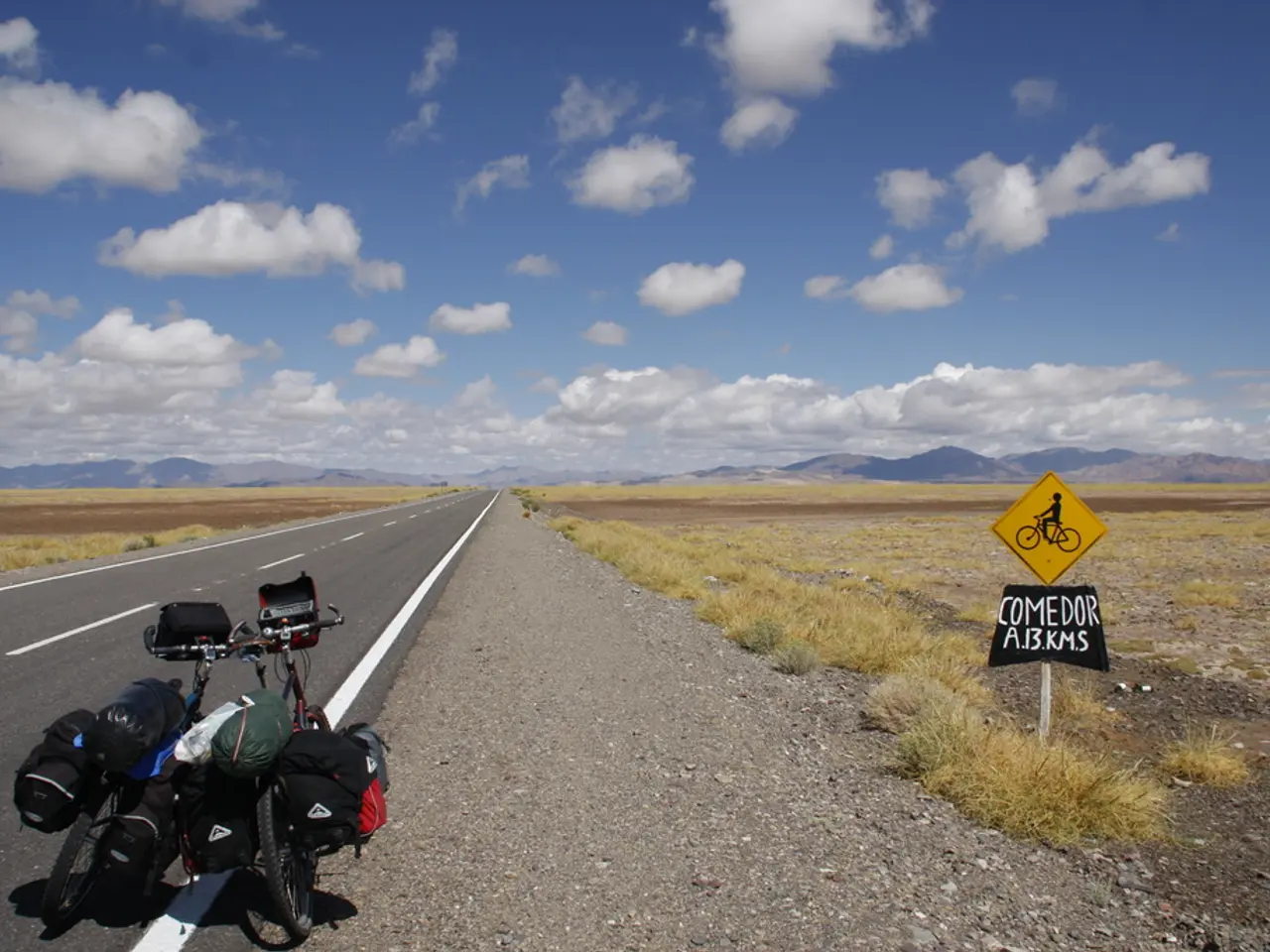Canada forecasts possible hazy conditions due to Prairie wildfire smoke drift
In early August 2025, Canada is grappling with an extensive wildfire season, with around 741 wildfires reported nationwide. Approximately 304 of these fires are classified as out of control, burning over 16 million acres, making 2025 the third most destructive year on record for Canada in terms of area burned [2].
The wildfires are widespread, with major fires in British Columbia, Newfoundland and Labrador, and other regions. In British Columbia, for example, about 40 wildfires are burning out of control, affecting several areas such as Cariboo, Okanagan, Fraser Canyon, Prince George, and eastern Vancouver Island [1][3]. In Newfoundland and Labrador, evacuations are underway due to out-of-control fires threatening communities like those along Conception Bay [3].
The smoke from these Canadian wildfires has polluted the skies over vast areas, not only within Canada but also across large parts of the United States, including the Midwest, Northeast, and as far south as Los Angeles, San Diego, and Las Vegas [2][4]. Air quality alerts have been issued in at least 10 U.S. states, ranging from Minnesota to Connecticut, due to haze and smoke particles infiltrating the atmosphere [2][4].
The smoke has caused reduced visibility, disruption of air travel (such as at Boston's Logan International Airport), and generally poor air quality for millions of people [4]. In Canada, the wildfire on Cameron Lake in British Columbia has forced hundreds to evacuate, and the smoke is expected to fill the skies from Vancouver Island to Charlottetown [1].
Common symptoms of poor air quality from wildfire smoke generally include respiratory irritation such as coughing, throat irritation, and shortness of breath, eye irritation and watering, increased asthma symptoms or exacerbation of chronic respiratory conditions, headaches and fatigue, and in sensitive individuals (children, elderly, and those with heart or lung conditions), exposure to wildfire smoke can worsen health and may require medical attention [4].
Due to the widespread smoke exposure, health agencies typically recommend avoiding outdoor activities in smoky conditions, using air purifiers indoors, and following local health advisories [4]. The report about the wildfires was first published on August 3, 2025, by Aaron Sousa for The Canadian Press [1]. The wildfires stretch from western British Columbia to eastern Prince Edward Island, and southern parts of the Northwest Territories are also affected.
Sources:
[1] Sousa, A. (2025, August 3). Wildfires force evacuations, pollute skies across Canada. The Canadian Press. Retrieved from https://www.thecanadianpress.com/news/canada/bc-wildfires-force-evacuations-pollute-skies-across-canada-1.4185811
[2] Wildfire Today. (2025, August 4). Canadian Wildfires: Over 700 Blazes Burning, 304 Out of Control. Retrieved from https://wildfiretoday.com/2025/08/04/canadian-wildfires-over-700-blazes-burning-304-out-of-control/
[3] Global News. (2025, August 5). Wildfires across Canada: What we know so far. Retrieved from https://globalnews.ca/news/8536396/canada-wildfires-what-we-know/
[4] Environmental Protection Agency. (n.d.). Wildfire Smoke. Retrieved from https://www.epa.gov/indoor-air-quality-basics/wildfire-smoke
The wide-spread wildfires in Canada have resulted in poor air quality, with millions of people experiencing symptoms such as respiratory irritation, eye irritation, and fatigue. Health agencies advise avoiding outdoor activities in smoky conditions, using air purifiers indoors, and following local health advisories. The out-of-control fires in British Columbia and Newfoundland and Labrador have prompted evacuations, producing smoke that has traveled across the United States and affected air quality in several states. The extensive wildfire season of 2025 is a significant environmental issue, also impacting weather patterns, climate change, and the overall state of environmental science.








